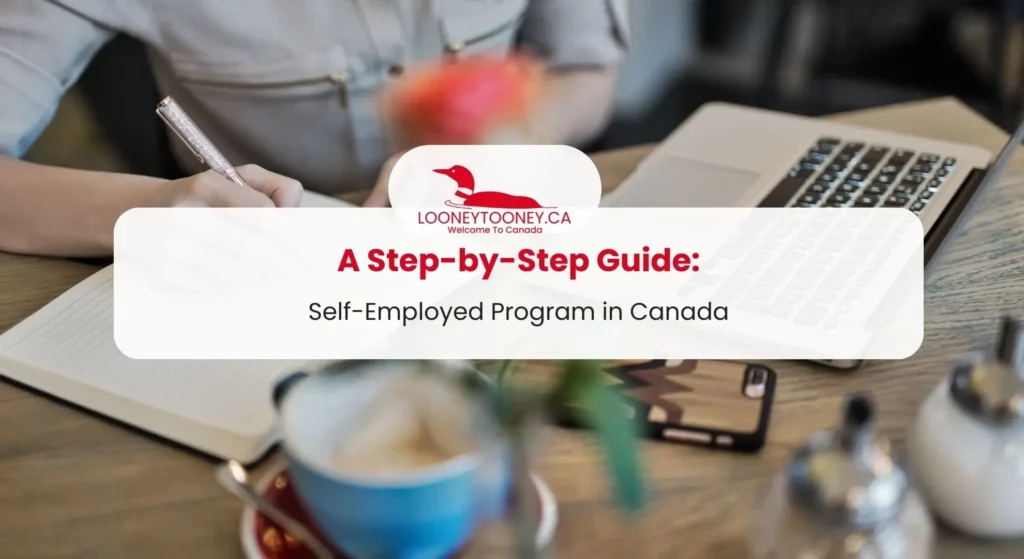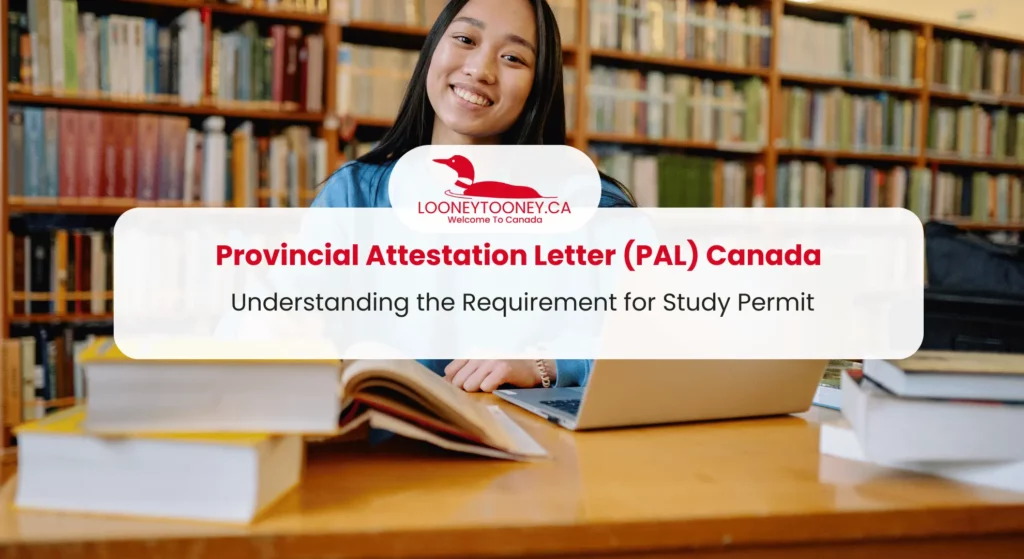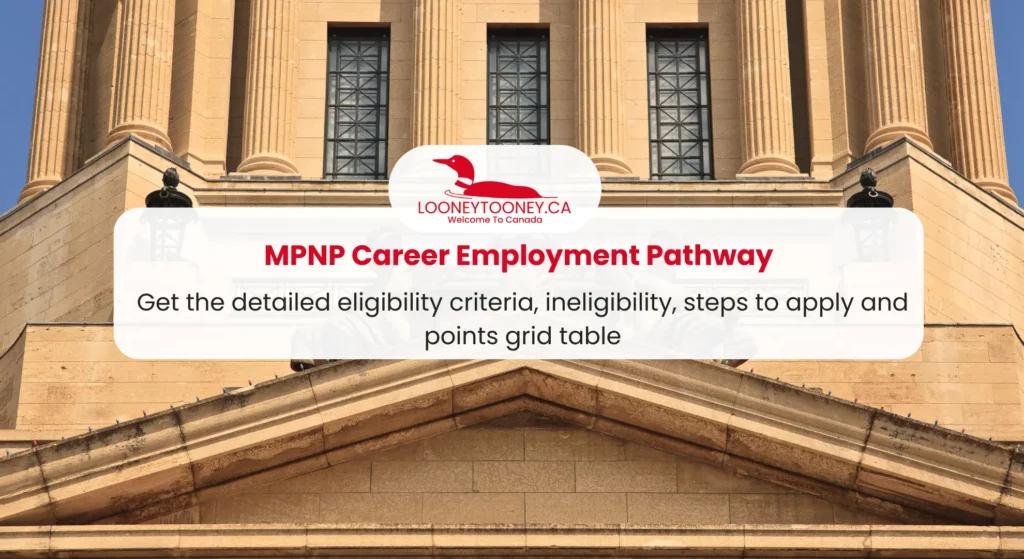Canada offers diverse opportunities for individuals worldwide, and for the self employed, there’s a unique pathway to permanent residency. This guide provides a comprehensive overview of the Self Employed Program, detailing the eligibility criteria, application process, and associated fees. Whether you’re an artist, athlete, or entrepreneur, understanding this program can be your key to calling Canada home.
Table of Contents
- What is a Self Employed Program?
- What are the Eligible Occupations under the Self Employed Program?
- What are the Selection Criteria for the Self Employed Program?
- How to Apply for the Self Employed Persons Program?
- Fees Structure for the Self Employed Program
- Self Employed Program Processing Time
What is a Self Employed Program?
Canada’s Self Employed Program is designed for individuals who are self employed in cultural activities or athletics and are looking to immigrate to Canada. This program recognizes the unique skills and experiences of professionals who have the potential to make a significant contribution to the Canadian cultural or athletic landscape. By offering a pathway to permanent residency, the program ensures that Canada continues to attract and retain talented individuals from around the world.
What are the Eligible Occupations under the Self Employed Program?
If you’re considering immigrating to Canada as a self employed individual, it’s essential to know that the country recognizes a wide range of professions within its artistic, cultural, and athletic domains. An interested candidate can apply for permanent residency if they specialize in any of the following occupations. Here’s a structured breakdown of some eligible occupations along with their respective NOC (National Occupational Classification) codes:
1. Art and Culture Professionals
- Librarians: NOC 5111
- Conservators and Curators: NOC 5112
- Archivists: NOC 5113
- Authors and Writers: NOC 5121
- Editors: NOC 5122
- Journalists: NOC 5123
- Public Relations and Communications Professionals: NOC 5124
- Translators, Terminologists, and Interpreters: NOC 5125
2. Entertainment Sector
- Producers, Directors, Choreographers, and Related Occupations: NOC 5131
- Conductors, Composers, and Arrangers: NOC 5132
- Musicians and Singers: NOC 5133
- Dancers: NOC 5134
- Actors and Comedians: NOC 5135
- Painters, Sculptors, and Other Visual Artists: NOC 5136
3. Technical and Skilled Occupations
- Library and Public Archive Technicians: NOC 5211
- Technical Occupations in Motion Pictures, Broadcasting, and the Performing Arts: NOC 5221
- Photographers: NOC 5222
- Film and Video Camera Operators: NOC 5223
- Graphic Arts Technicians: NOC 5224
- Broadcast Technicians: NOC 5225
- Audio and Video Recording Technicians: NOC 5226
- Support Occupations in Motion Pictures, Broadcasting, and the Performing Arts: NOC 5227
- Announcers and Other Broadcasters: NOC 5231
- Other Performers: NOC 5232
- Graphic Designers and Illustrators: NOC 5241
- Interior Designers and Interior Decorators: NOC 5242
- Theatre, Fashion, Exhibit, and Other Creative Designers: NOC 5243
- Artisans and Craftspersons: NOC 5244
- Patternmakers – Textile, Leather, and Fur Products: NOC 5245
- Athletes: NOC 5251
- Coaches: NOC 5252
- Sports Officials and Referees: NOC 5253
- Program Leaders and Instructors in Recreation, Sport, and Fitness: NOC 5254
What are the Selection Criteria for the Self Employed Program?
The Self Employed Program operates on a points-based system. Applicants are assessed on various factors, and they must achieve a minimum score of 35 out of a possible 100 to qualify.
Factor 1: Age
The age of the applicant plays a pivotal role in the points awarded. Points are awarded based on the age of the applicant, with individuals aged 21-49 earning a maximum 10 points. The distribution is as follows:
| Age | Points |
| 20 | 8 points |
| 21 to 49 years | 10 points |
| 50 | 8 points |
Factor 2: Education
Educational qualifications can significantly boost an applicant’s points. Points are awarded based on the highest level of education achieved. A master’s degree or Ph.D., along with at least 17 years of full-time study, earns a maximum of 25 points. Here’s the breakdown:
| Education | Points |
| Master’s degree or Ph.D. | 25 points |
| Two or more bachelor’s degrees or three-year diploma | 22 points |
| Bachelor’s degree of minimum two years or two-year diploma | 20 points |
| One-year bachelor degree or one-year diploma (13 years of study) | 15 points |
| One-year diploma (12 years of study) | 12 points |
| High school certificate | 5 points |
Factor 3: Experience
Relevant self-employment experience is crucial. Relevant experience must have been obtained within the five-year period before an application is signed. Points are awarded based on years of experience, with five years of relevant experience earning a maximum of 35 points. Points based on years of experience are
| Years of Experience | Points |
| Five years of relevant experience | 35 points |
| Four years of relevant experience | 30 points |
| Three years of relevant experience | 25 points |
| Two years of relevant experience | 20 points |
Factor 4: Language Proficiency
Proficiency in English or French can earn applicants points in both languages. The distribution is
| Proficiency Level | English (IELTS) | French (IELTS) | Points |
| High Proficiency | 6.5 to 9 | 6.5 to 9 | 16 points |
| Moderate Proficiency | 5 to 6.5 | 5 to 6.5 | 8 points |
| Basic Proficiency | 3.5 to 5 | 3.5 to 5 | 2 points for English, 4 points for French |
Factor 5: Adaptability
Points can be earned based on factors like a spouse’s education, previous work or study in Canada, or having relatives in Canada. A maximum of 6 points can be earned in the adaptability factor. Various adaptability factors can enhance an applicant’s points:
| Adaptability Factors | Points |
| Spouse’s education (Master’s degree or Ph.D.) | 5 points |
| Spouse’s education (Two or three-year diploma or degree) | 4 points |
| Spouse’s education (One-year diploma or degree) | 3 points |
| You or your spouse has completed a minimum of two studies in Canada | 5 points |
| You or your spouse has a blood relative in Canada as a PR | 5 points |
| You or your spouse has completed a minimum of two study in Canada | 5 points |
How to Apply for the Self Employed Persons Program?
Embarking on the journey to Canadian permanent residency through the Self Employed Persons Program requires a systematic approach. It’s always advisable to cross-check with the official IRCC guidelines for detailed and updated information.
Here’s a step-by-step guide to help you navigate the application process:
1. Document Preparation:
- Ensure you meet the eligibility requirements.
- Arrange documents as per the official document checklist (IMM 5784).
- Undergo a medical exam for all family members.
- Obtain police certificates for background verification.
2. Online Application:
- Create or sign in to a permanent residence online application portal account.
- Use the instruction guide (IMM 4500) to assist in filling out the forms.
- Complete the required digital forms online for yourself and any family members 18 or older:
- Generic Application Form for Canada (IMM 0008)
- Schedule A – Background/Declaration (IMM 5669)
- Additional Family Information (IMM 5406)
- Supplementary Information – Your Travels (IMM 5562)
- Additionally, fill out and upload the following PDF forms:
- Document Checklist (IMM 5784)
- Schedule 5 – Economic Classes/Declaration of Intent to Reside in Quebec (IMM 0008 Schedule 5)
- Schedule 6A – Business Immigrants – Self Employed Persons (IMM 0008 Schedule 6A)
3. Using an Immigration Representative:
If you’re using an immigration representative, ensure you submit the ‘Use of a Representative’ (IMM 5476) form. This form should be signed digitally or by hand by both you and your representative.
4. Fee Payment:
- Pay the necessary fees using the online fee tool. This includes processing fees, the Right of Permanent Residence fee (RPRF), and biometrics. (For a detailed fee structure, refer to the ‘Fees’ section below.)
- After paying the biometrics fee, you’ll receive a letter confirming the need to give biometrics and where you can do so.
5. Biometrics:
- If you’re between 14 and 79 years old, you’ll need to give your fingerprints and photo (biometrics).
- Book an appointment for biometrics at a collection point close to you.
6. Application Review & Approval:
- After submission, the immigration office will review your application.
- They may request additional documentation if needed.
- If your application aligns with Canadian norms, you’ll receive Canadian permanent residency under the Self Employed Visa.
Fees Structure for the Self Employed Program
Self Employed Program comes with specific fees that applicants must pay to ensure the smooth processing of their applications. It’s recommended to pay the Right of Permanent Residence fee (CAN$ 515) upfront to avoid any future delays. This fee is mandatory and must be paid before becoming a permanent resident. Always refer to the official IRCC guidelines for detailed and updated information. Below is a detailed breakdown of the fees:
1. Self Employed People:
- Application processing fee: $1,625
- Right of Permanent Residence fee: $515
- Total (with Right of Permanent Residence fee): $2,140
- Total (without Right of Permanent Residence fee): $1,625
2. Spouse or Partner:
- Processing fee: $850
- Right of Permanent Residence fee: $515
- Total (with Right of Permanent Residence fee): $1,365
- Total (without Right of Permanent Residence fee): $850
3. Dependent Child:
- Fee per child: $230
4. Biometrics:
- Per person: $85
- For a family (2 or more people): $170
Self Employed Program Processing Time
You might have to provide biometrics along with your application. The processing time also involves the time required for providing your biometrics. Typically, the processing duration for the Self Employed Program is around 24 months. However, it’s crucial to verify the processing time on the official website.
To prevent any delay, inform IRCC if there are any changes in your personal details. You can use IRCC’s online form to update important changes in your application, like:
- Changes in where you live, phone number, email, or other contact info
- Births or deaths in your family
- Marriages or divorces
- Adoptions
- Alterations in your job or job offer
- New educational qualifications
- Updated results of language tests
Your application might be delayed if:
- there are legal or security issues
- additional background checks are necessary
- unclear family circumstances (like ongoing divorces or incomplete adoptions or unresolved child custody issues)
- the visa office needs to contact other Canadian or international visa offices to confirm the information you provided.
In conclusion, the Self Employed Program offers a unique opportunity for individuals with significant experience in cultural activities or athletics to make Canada their home. By adhering to the guidelines set by IRCC and ensuring all criteria are met, self employed individuals can embark on a new chapter of their professional journey in Canada.
You may also be interested in other programs:





